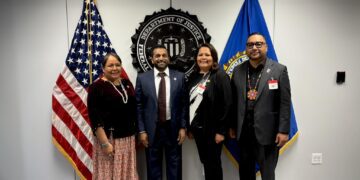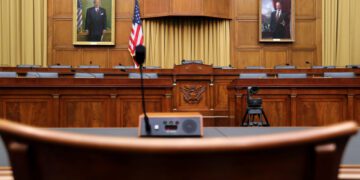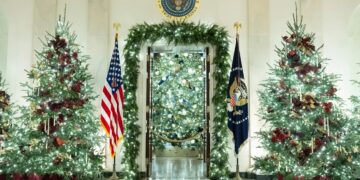By John F. Di Leo -
On April 1, 1789, the newly elected members of the United States House of Representatives finally had a quorum. Just like nowadays, one of the first acts of business had to be to organize the body, and on that long ago April First, the House elected a Lutheran minister from Pennsylvania, Frederick Muhlenberg.
Modern history classes having abandoned most coverage of our Founding Era, most of us only remember the Founding Fathers who served as president or have their faces on our currency… so we know Presidents Washington, Adams, Jefferson, Madison, and Monroe, and Benjamin Franklin and Alexander Hamilton, of course… but then the average student soon runs out of names.
When we stumble upon as important a title as Speaker of the House, and realize that we don’t know him, we should ask ourselves, was our history education that deficient? Or perhaps was the role less important in those days, and the person’s election just a fluke? Well, let’s consider it for ourselves…
The first US House had only 65 members (though the number was expanded to 105 for the 1792 elections, following the 1790 census). So to have been selected as one of only 65 in the whole country, one was already part of a rather exclusive group.
In that first House, the members included such leading lights of the Revolutionary Era as George Clymer, Thomas Fitzsimons, and Roger Sherman… former president of the Confederation Congress, Elias Boudinot… polemicist Fisher Ames and future vice president Elbridge Gerry… and even future president James Madison.
That such a group of respected statesmen selected Frederick Muhlenberg speaks well of him, doesn’t it?
Frederick Augustus Muhlenberg
Frederick Muhlenberg was born in Trappe, Pennsylvania on January 1, 1750… so there’s another item in his favor: he was only 39 when elected our first Speaker of the House.
Though his mother had deep roots here in the Colonies, his father was a German immigrant. A Lutheran minister and director of a Grosshennersdorf orphanage, Heinrich Muhlenberg was sent to the colonies as a missionary in 1742, at the request of Pennsylvania Lutherans. When he arrived, he took the helm as leader of the Lutheran churches in the British colonies (they had been set up years before by laymen, in anticipation of the day when they would get real, educated ministers like him).
Heinrich Muhlenberg is therefore considered to be the official founder of the Lutheran Church in America, and he raised his children as one would expect from a minister: they had eleven children, several of whom became prominent in public service. Their son Peter rose to be a general in the Continental Army; another son, Henry, became a prominent botanist, serving as the first president of Franklin College. Three of the brothers became pastors themselves.
Frederick, along with his brothers Peter and Henry Ernst (there were two Henrys among the eleven, just to make things confusing), attended school in Halle, Germany in the mid-1760s.
Upon his return, as a newly minted Lutheran minister, Frederick Muhlenberg served as a pastor in Pennsylvania from 1770 through 1774, then served parishes in New York City from 1774 through 1776. When war broke out (and the British occupied New York City), he returned home with his family to Pennsylvania, and managed a general store in addition to pastoral duties.
He entered the state legislature in 1779, serving as Pennsylvania’s Speaker in 1780-81, while serving in the state’s delegation to the Continental Congress. In 1787, Muhlenberg was selected as chairman of Pennsylvania’s ratifying convention, leading the difficult deliberations over the transformation of our country from a loose wartime alliance to a true permanent nation.
And then in 1788, he was elected as one of the members of Pennsylvania’s first delegation to the new lower half of Congress, the House of Representatives. Elected to his first term as Speaker on April 1, 1789, he was followed by Jonathan Trumbull Jr for the second House term (from 1791 through 1793), and was then re-elected for second single term from 1793 through 1795. Frederick Muhlenberg therefore served as both the nation’s first and third Speaker of the House.
A Minister in Public Office
Practically every day, we encounter news articles, partisan speeches, and talking heads on the television, repeating the claim that America was not founded to be a Judaeo-Christian nation. They claim that American settlers came to America to flee theocracies and wanted a secular society. People (and even textbooks) often repeat and expand the lie, pretending that our Founding Fathers were all just some kind of vague and confused "deists" – but the historical record proves such claims to be poppycock.
In fact, the settlers who fled Europe for these shores were generally very religious people, probably more religious than the governmental leaders of the countries they fled. They didn’t come here because they didn’t want to be Christian; they often came because their particular denominations differed from their governments’, that’s all. English Catholics fled Anglican England; French Protestants fled Catholic France, and so forth. They didn’t want to escape religious worship, they wanted to be free to worship in their own way.
Our Founding Era politicians mirrored that public sentiment. Not only was the Founding generation primarily a very devout group of laymen, as voters, they often selected ministers to represent them in both state and national government. Some of the better known among the many ordained ministers and other lay leaders and chaplains who served in those early days included John Witherspoon, Robert Treat Paine, Lyman Hall, and Abraham Baldwin.
One only has to read their speeches – particularly such letters to the public as George Washington wrote as both Commander in Chief and later, as President – to see that a deep commitment to religious devotion animated the public spirit from the very beginning of our nation’s history.
The spirituality that animated their design of the new nation – and particularly the inspiration of the ban on “religious tests” in the Constitution, and the insistence on “freedom of religion” in the First Amendment – was in fact driven by a desire to ensure that no single denomination would rule the country as it did across Europe. They wanted religious freedom so that we would be free to be Lutheran or Episcopalian… or Calvinist or Catholic… or Jewish or Quaker… or non-denominational Congregationalist.
True, the Founding generation occasionally voted for a few atheists and vague deists (like Franklin and Jefferson) for high public office; they even made Common Sense a runaway bestseller despite Tom Paine being an atheist. The people of the Founding era didn't allow their disagreement on one important issue to blind them to all the others (if only we could resist single-issue voting as well today!).
In sum, the vast majority of both the people and their representatives were devout members of some religious denomination, and they truly expected that to remain the case, forever.
John Adams put it best: "Our Constitution is designed only for a moral and religious people. It is wholly inadequate for any other."
And so it was that when it came time for the people’s house – the House of Representatives of the first session of Congress – to select its first Speaker, on April 1, 1789, not only was it “not uncomfortable” for a contender to be a Lutheran Minister, but in fact, they were perfectly comfortable with it.
By selecting a pastor – not of one of the nation’s most populous denominations, but rather, of one of our less popular ones – the Founding Fathers made a statement about America: that we are indeed a religious people, but that we are free to belong (or not) to the denomination of our choice.
Frederick Muhlenberg was a believer in God and Country, a devoted family man and an inspirational pastor. His selection was proof that our nation’s Founders weren’t particularly concerned with ethnicity or denomination (as so many people today pretend), but in fact, they cared about the content of your mind. In a body dominated by people of English and Scottish heritage, who had just overthrown a king of German heritage a few years before, they selected a Speaker of German heritage.
Why? Because despite his foreign-sounding name, Frederick Muhlenberg was one of them, where it mattered: he was a fellow believer in Liberty… an advocate for the Founding principles of free markets, free people, and Constitutionally limited government.
If only we could return to making our electoral decisions on those simple conditions again.
Copyright 2019 John F. Di Leo
John F. Di Leo is a Chicagoland-based Customs broker and trade compliance trainer, writer and actor. His columns are regularly found in Illinois Review.
Shown: The portrait of Frederick Muhlenberg painted by Joseph Wright in 1790, while he was serving as Speaker of the House.
Don’t miss an article! Use the tool in the margin to sign up for Illinois Review’s free email notification service, to be notified whenever IR publishes new content!







